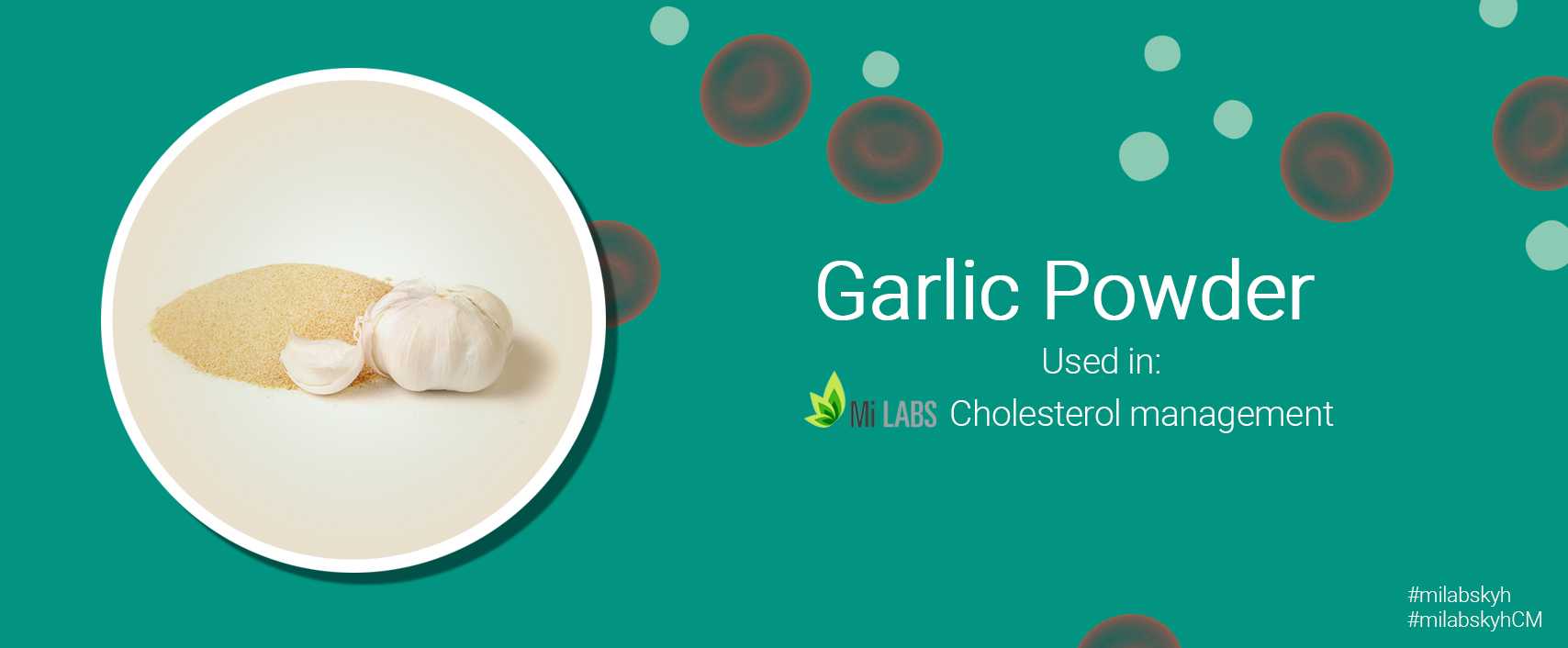

Written By Health Hub
August 10, 2017

Garlic (Allium sativum) is a root vegetable that is well known for its medicinal properties in different countries across the world, for more than 5,000 years. The role of garlic in treating various health conditions ranging from hypertension to bacterial infections has been well ascertained. It has powerful antibiotic, antifungal and antiviral properties. Because of its multiple health benefits, traditionalists consider it to be a “wonder herb”.
Cardiovascular diseases are one of the most prominent diseases of the 21st century. LDL (“bad cholesterol”) carry cholesterol from the liver to cells of the body and HDL (“good cholesterol”) collect cholesterol from the body’s tissues and return it to the liver. Hypercholesterolemia is a medical condition that contributes to the development of several cardiovascular diseases. Hypercholesterolemia is marked by an alarming increase in the levels of LDL. Dietary factors play a key role in the development of cardiovascular diseases. Epidemiologic studies suggest an inverse correlation between garlic consumption and progression of cardiovascular diseases.
The increasing incidences of cardiovascular diseases are associated with multiple factors like, raised serum total cholesterol, raised LDL and an increase in LDL oxidation, increased platelet aggregation, hypertension, and smoking. Several in vitro studies suggest that garlic has the ability to reduce these parameters. Garlic can inhibit the enzymes involved in lipid synthesis, decrease platelet aggregation, prevent lipid peroxidation of oxidized erythrocytes and LDL and inhibit angiotensin-converting enzyme (Rahman and Lowe).
The root bulb of garlic is composed of water, sulfur compounds called thiosulfinates, amino acids, and numerous vitamins and minerals. According to Tattelman, one particular thiosulfinate called allicin is the active element in garlic, which is responsible for its numerous medicinal properties. Several clinical trials have been conducted which suggest the modest lipid-lowering capacity (lowering of the levels of LDL- cholesterol in particular) and antiplatelet activity of garlic. The organosulfur compound, Allicin, has been found to work at par with other cholesterol lowering drugs (Tattelman).
Several animal studies indicate that garlic and its constituents inhibit key enzymes involved in cholesterol and fatty acid synthesis in rat hepatocytes. The two enzymes which are directly involved in the cholesterol biosynthesis are human squalene monooxygenase and HMG-CoA reductase. Garlic and its constituents inhibit the action of these enzymes and control the synthesis of cholesterol (Rahman and Lowe). Studies also suggest that the aged garlic extract contains S-allylcysteine (SAC). This water soluble compound is less cytotoxic and more efficient in inhibiting cholesterol biosynthesis (Rahman and Lowe).
The oxidative stress inside our body leads to the pathogenesis of cardiovascular diseases. As garlic is rich in antioxidants, it has the potency to reduce the oxidative stress and thus control the occurrence of cardiovascular disease.
A Two meta-analyses have been conducted in 1993 and 1994 to study the effect of garlic on cholesterol levels. About 9-12% reduction in the cholesterol levels was found in experimental group in comparison to placebo after the consumption of garlic. A more recent meta-analysis conducted in 2001 suggests that standardized dried garlic powder can reduce total cholesterol levels (19.2 mg per dL), low-density lipoprotein cholesterol levels (6.7 mg per dL) and triglyceride levels (21.1 mg per dL) after 8-12 weeks of treatment (Tattelman).
A very recent meta-analysis conducted by Kwak and his group in 2014 suggests that garlic powder intake reduces the cardiovascular disease risk factors such as total cholesterol and low density lipoprotein cholesterol, fasting blood glucose levels and blood pressure (Kwak, et al).
Based on several experimental studies and clinical trials, we can conclude that garlic supplementation has the potential for cardiovascular protection based on the reduction of risk factors such as hypertension and total cholesterol. Garlic is generally safe and can be consumed by people of all the age groups. Proper medication and adoption of healthy lifestyle habits would control the progression of hypercholesterolemia. Consumption of garlic powder would further add to this, as it can lower the LDL-cholesterol levels.
Leave a Comment
Your email address will not be published.